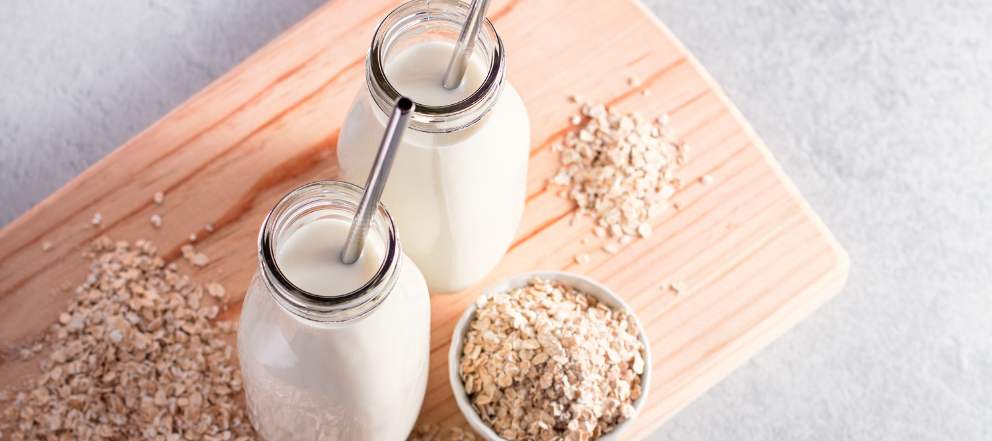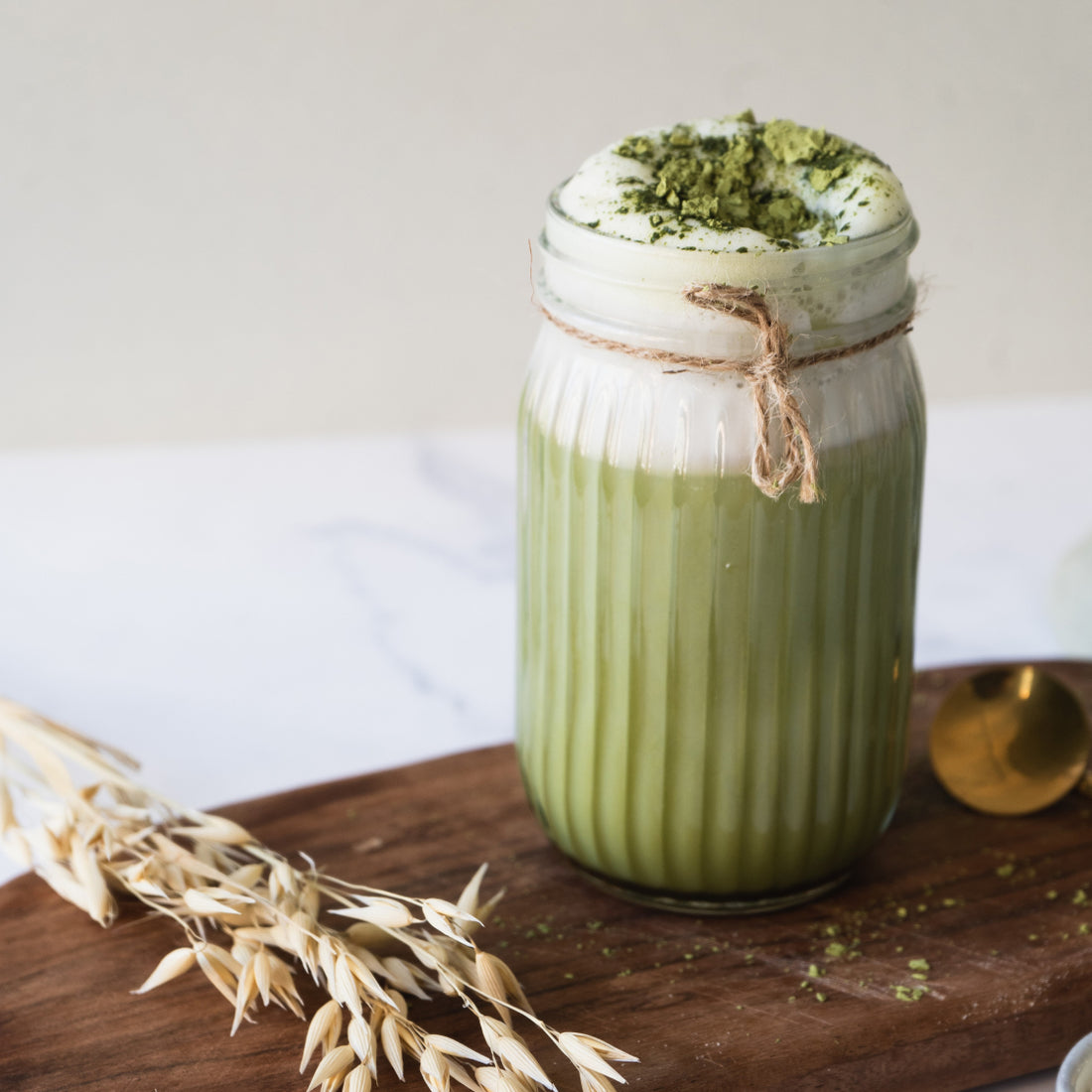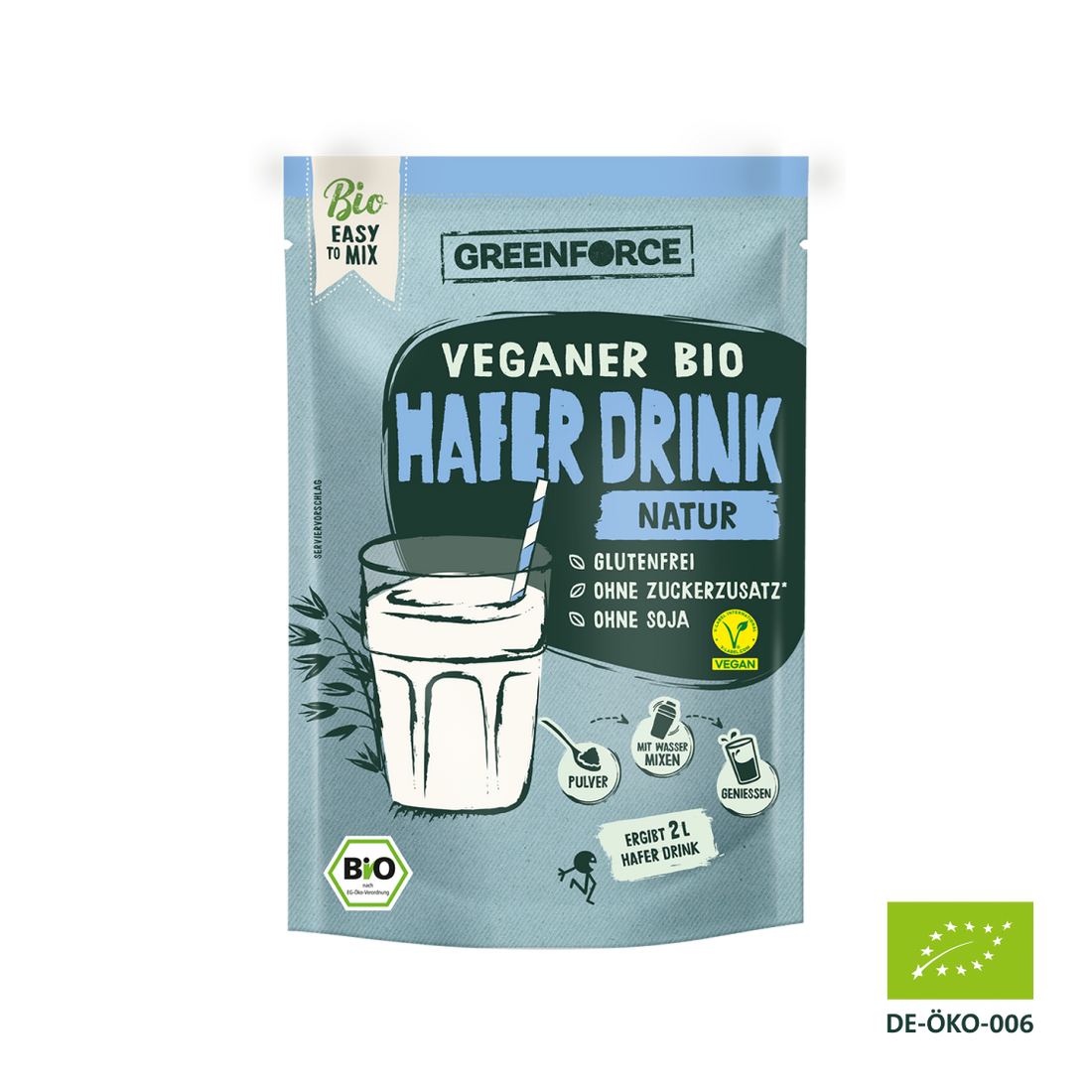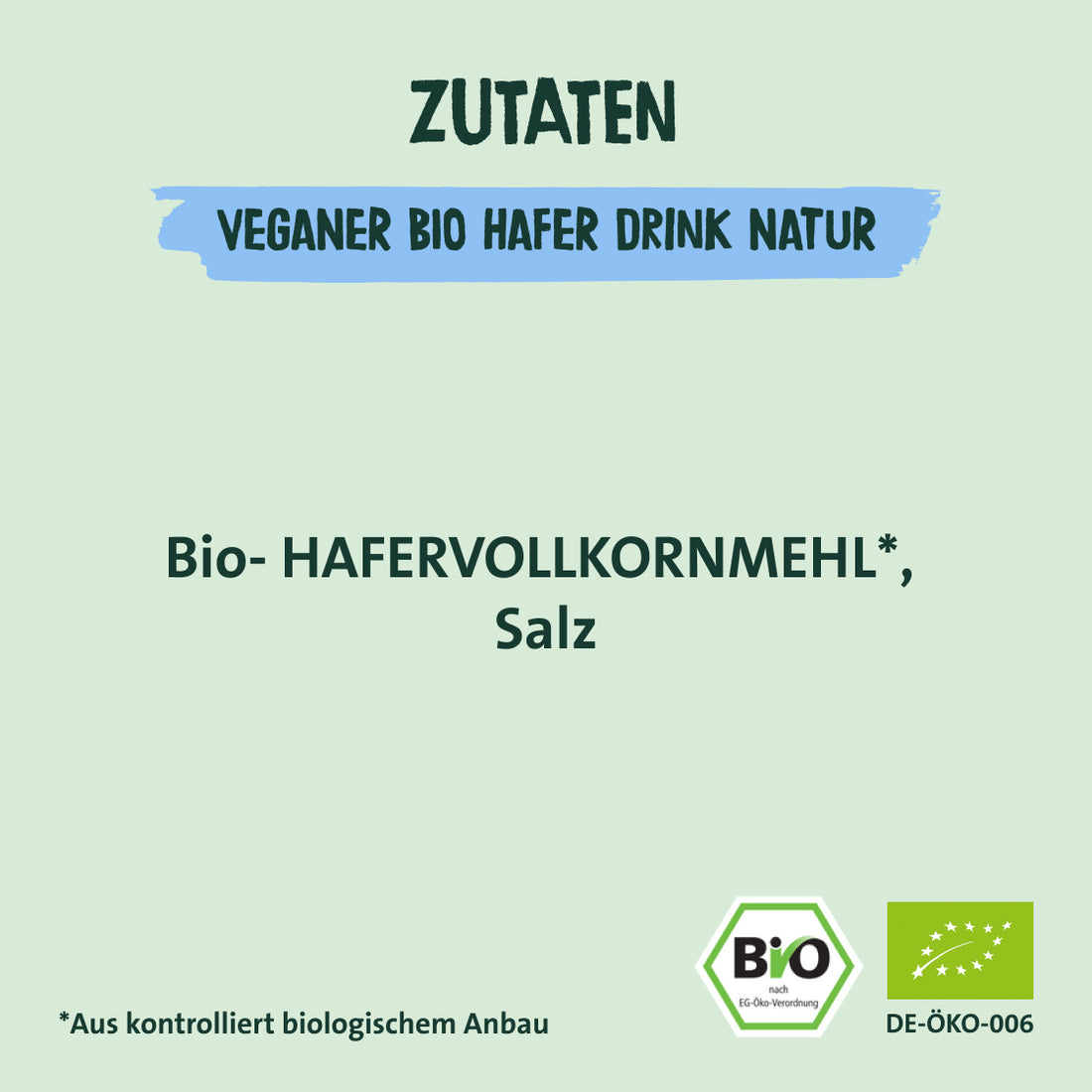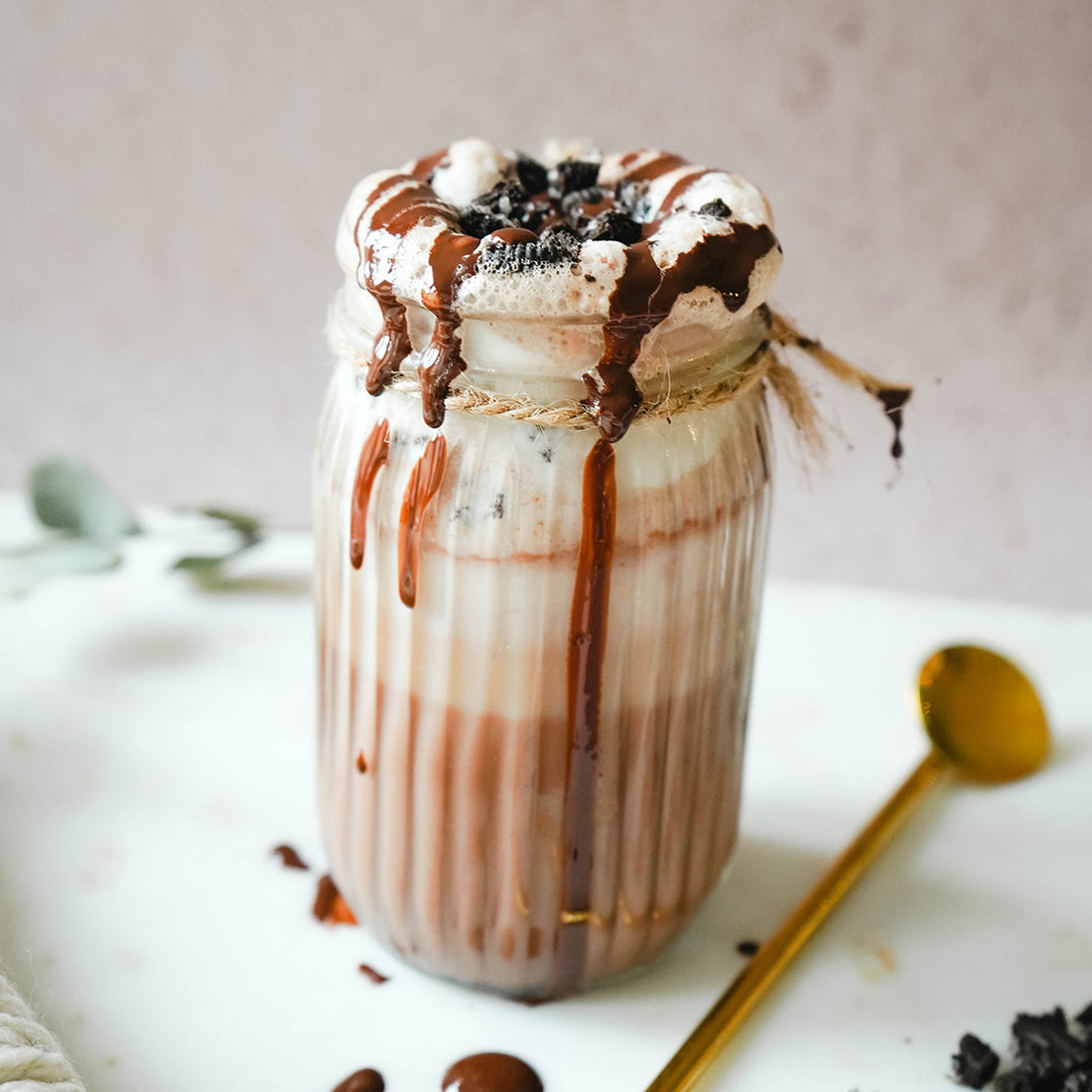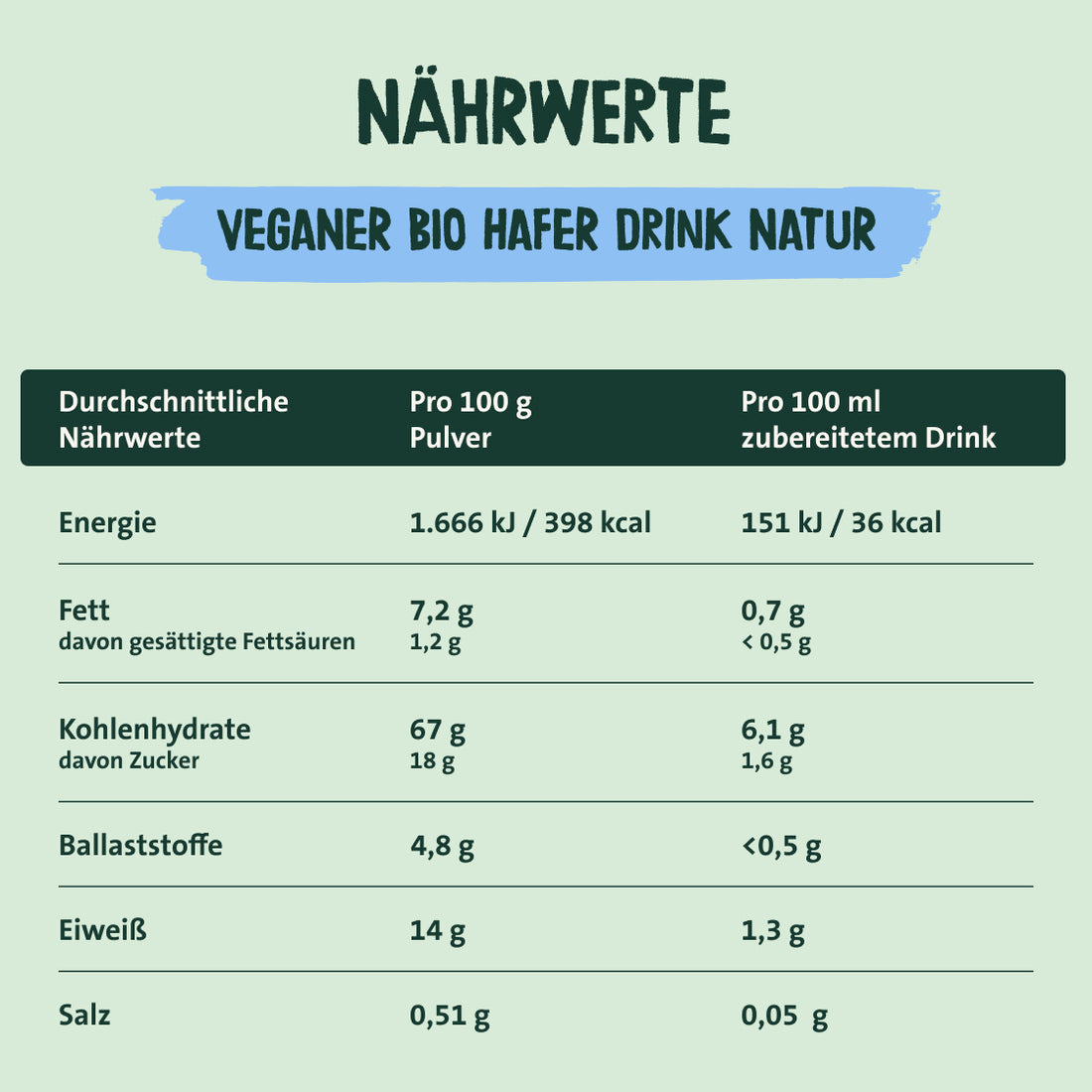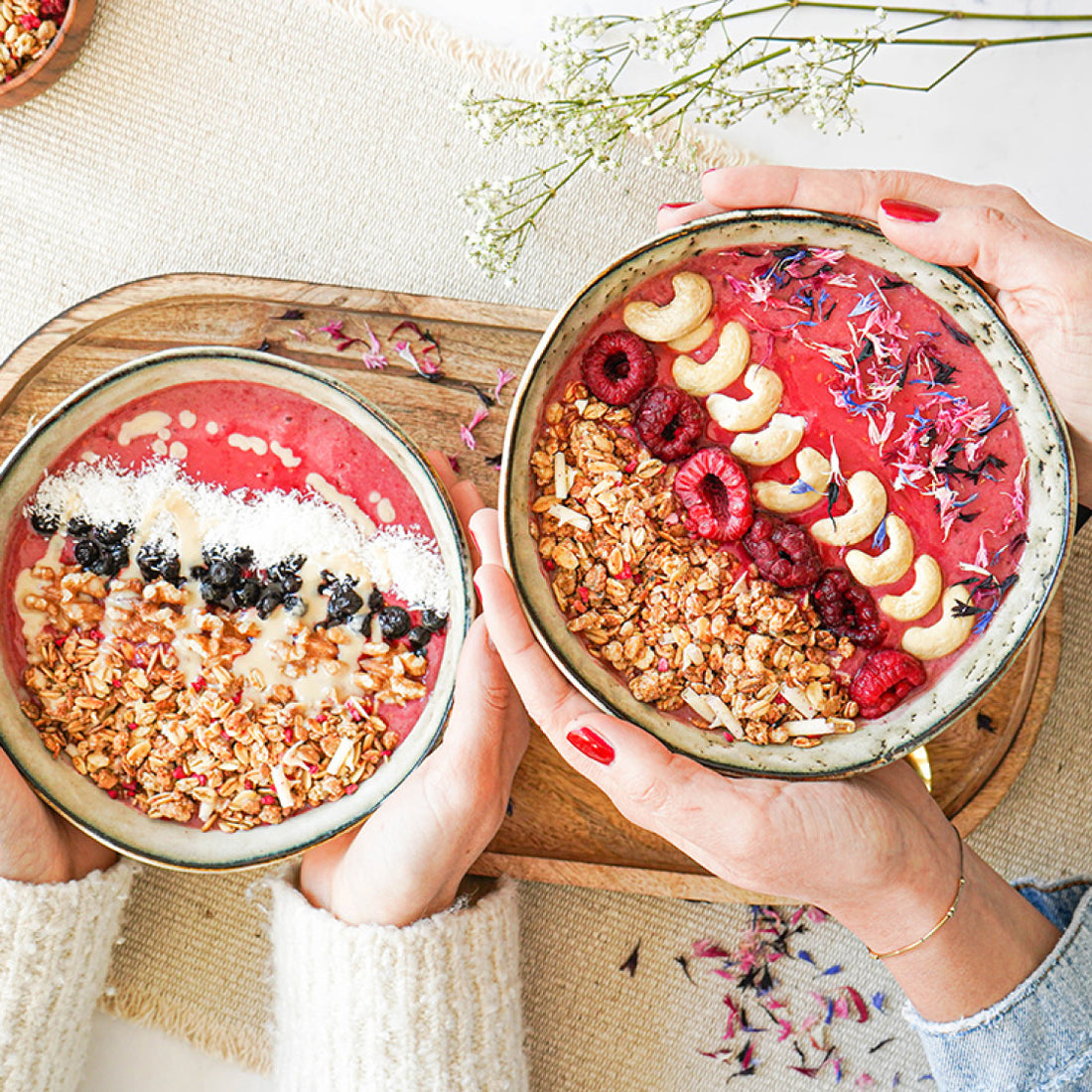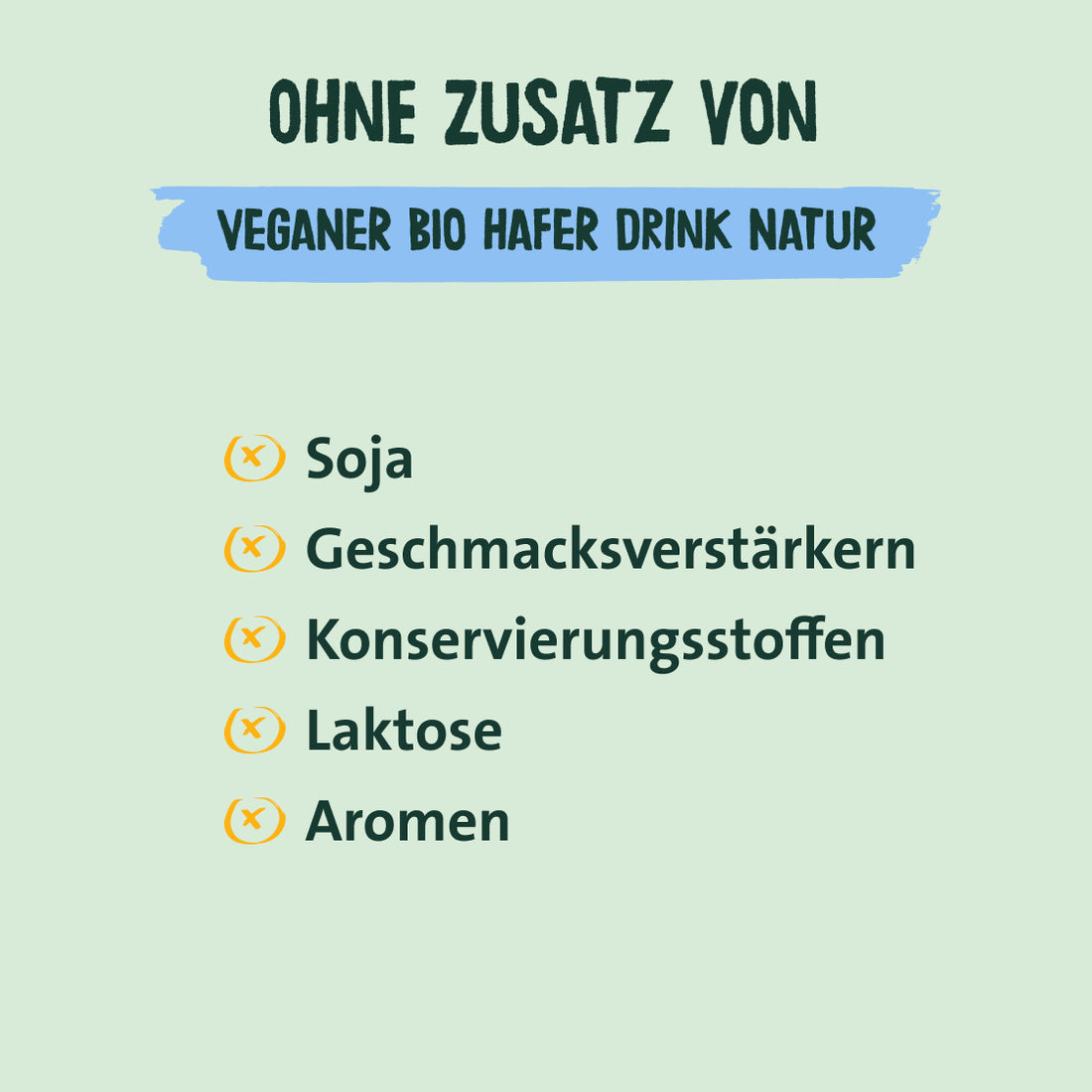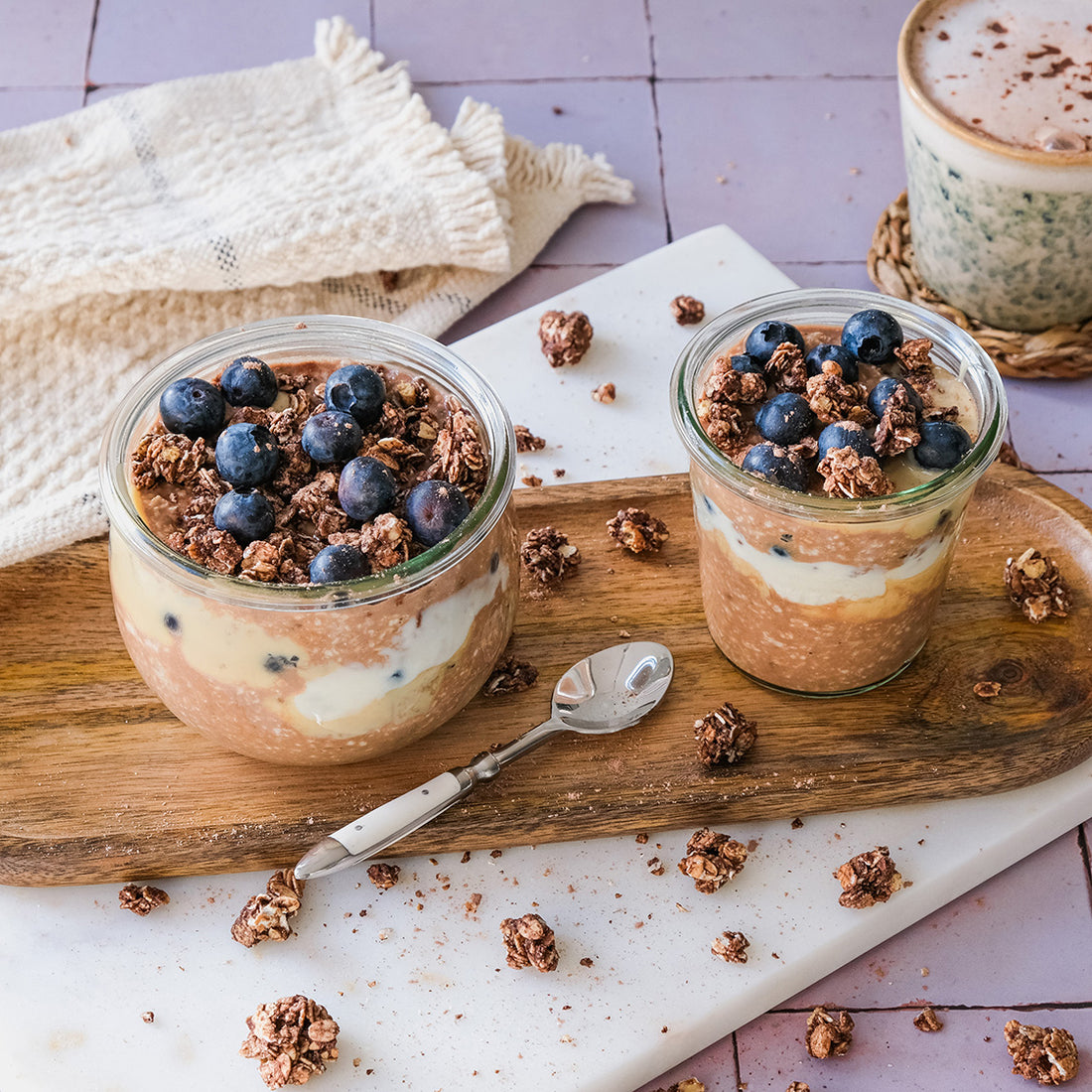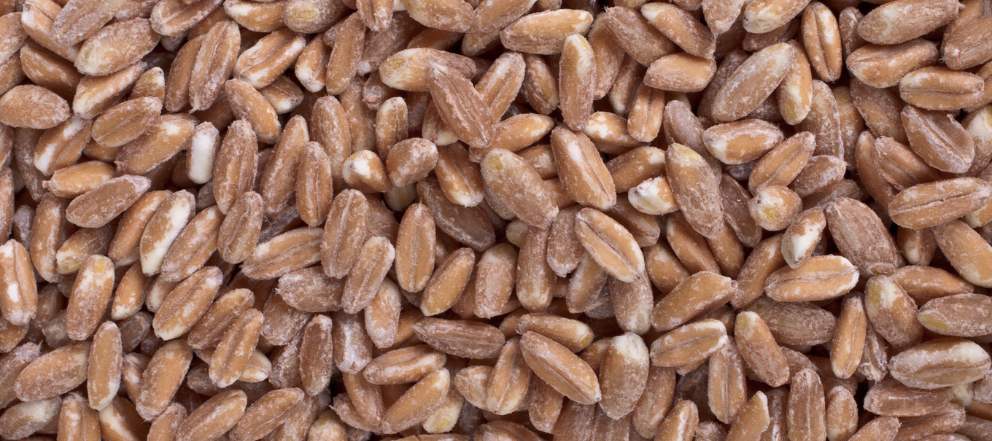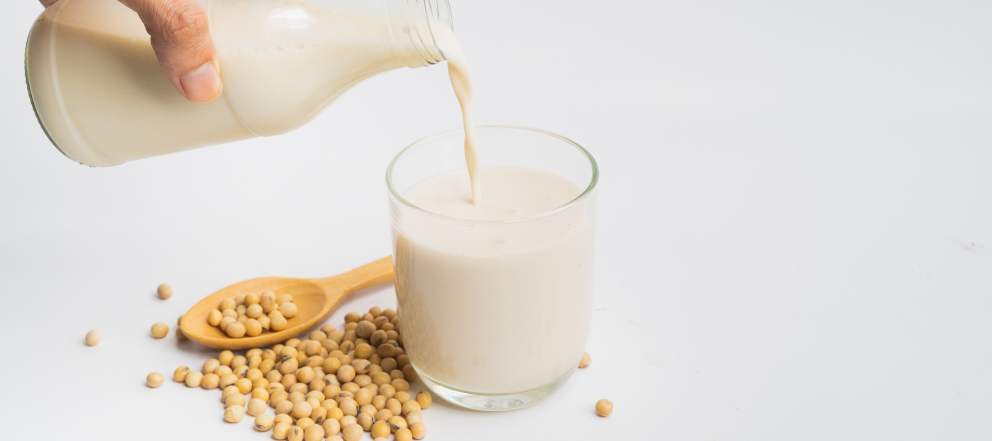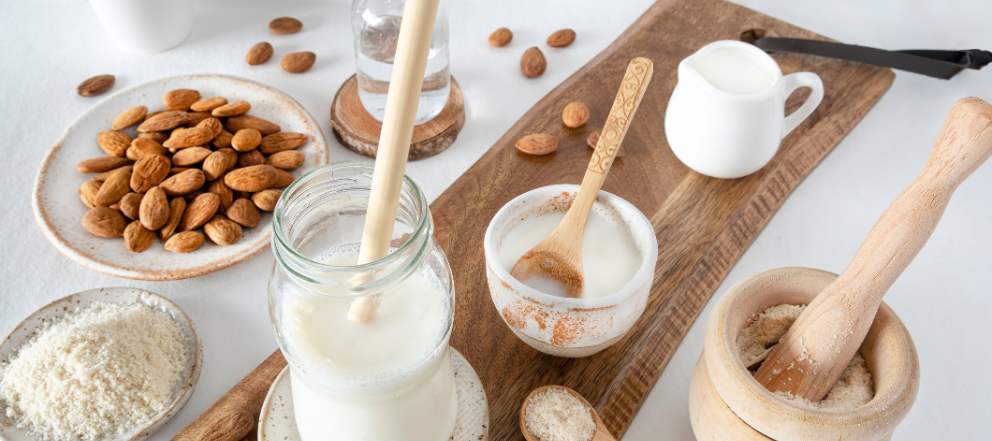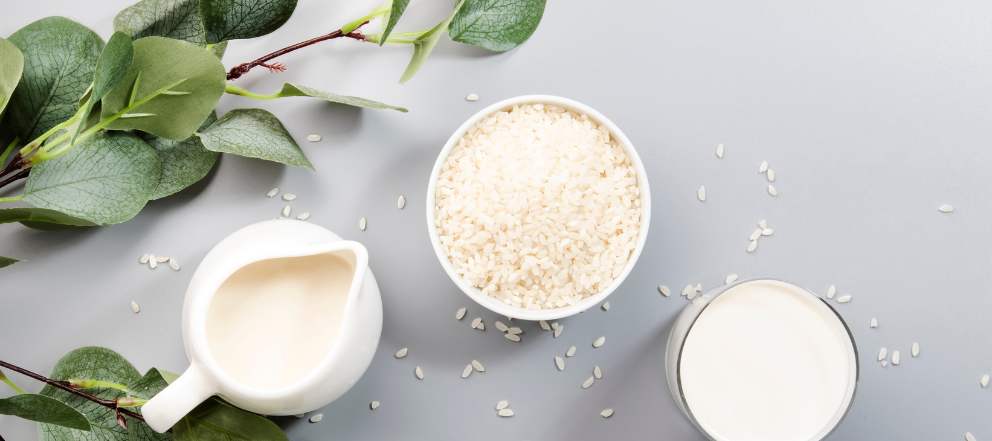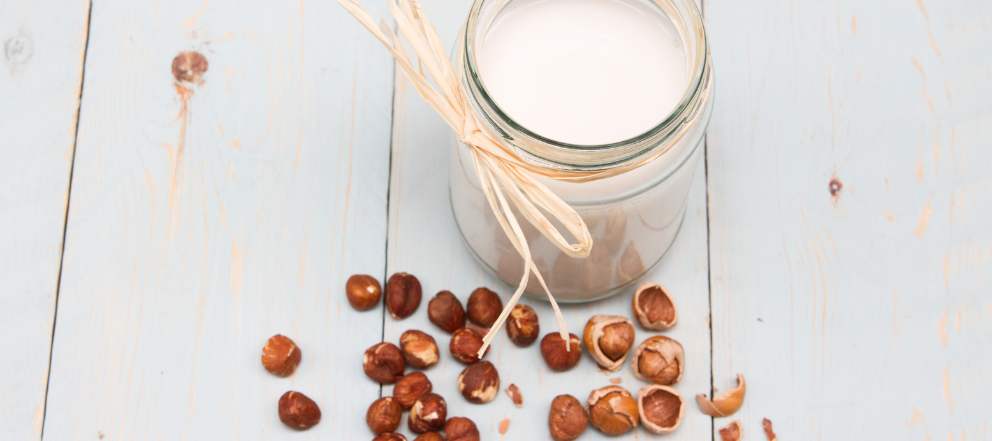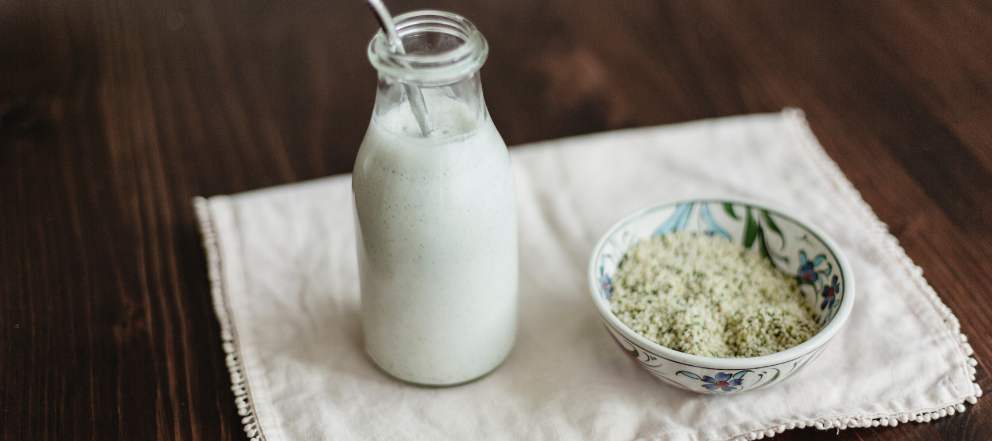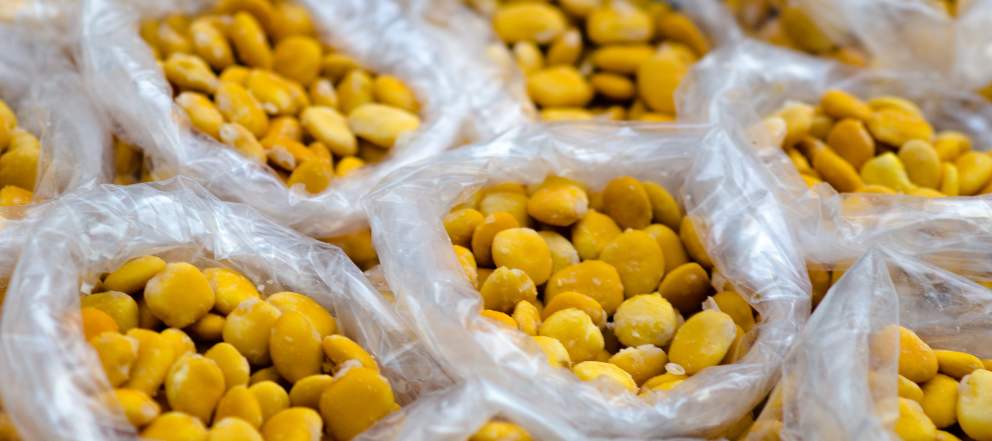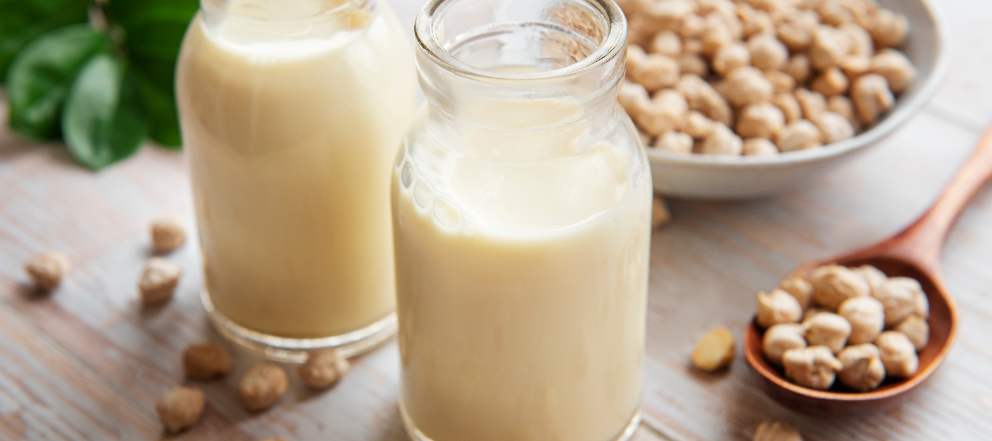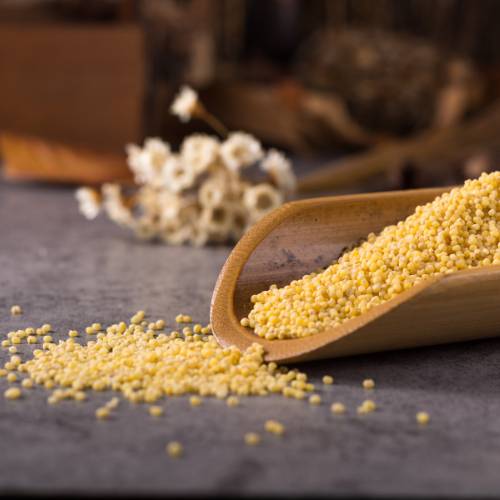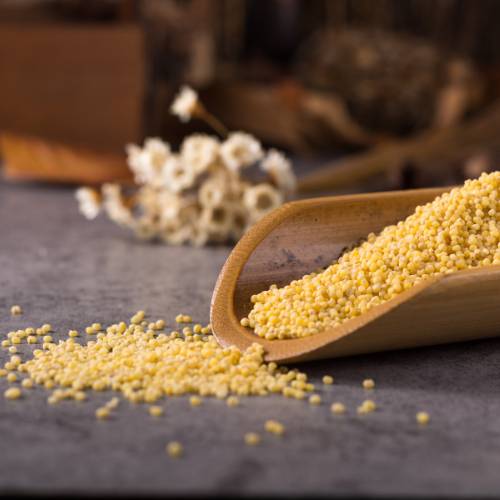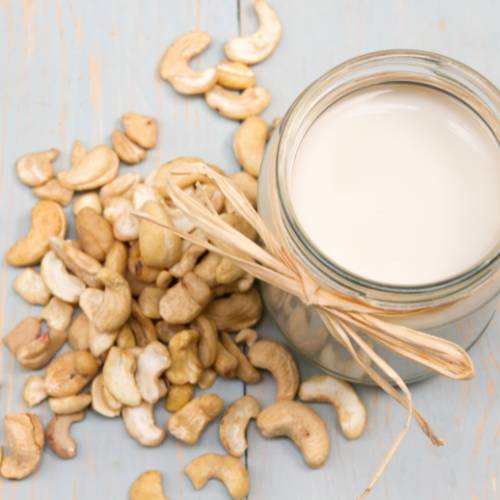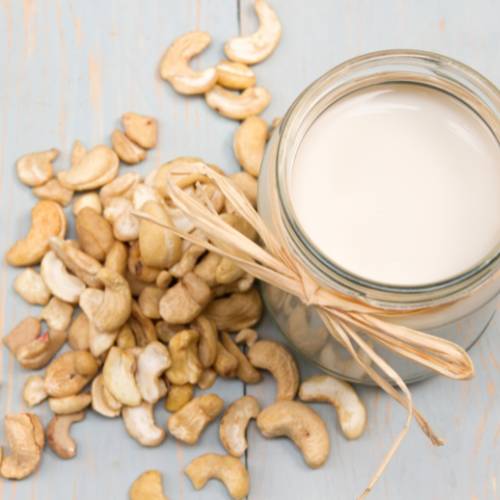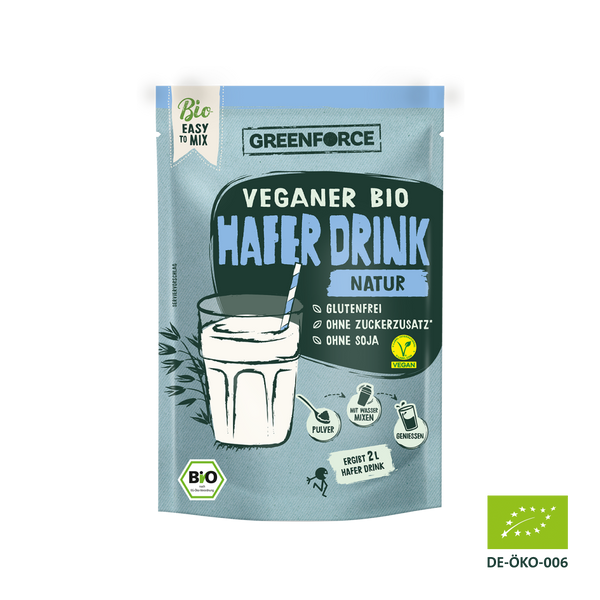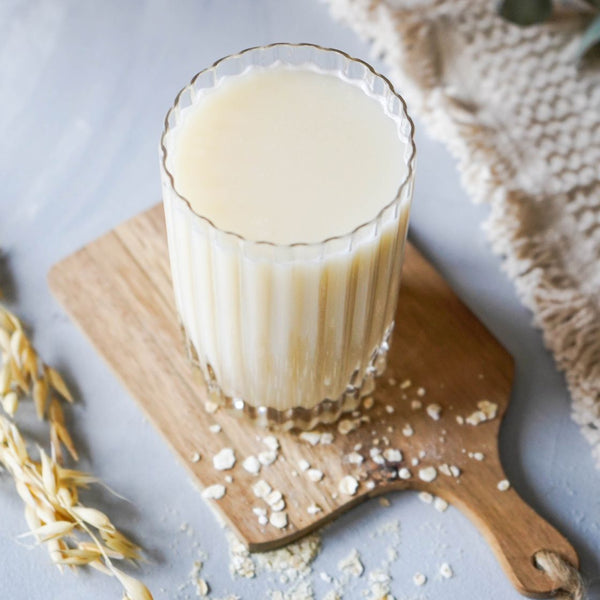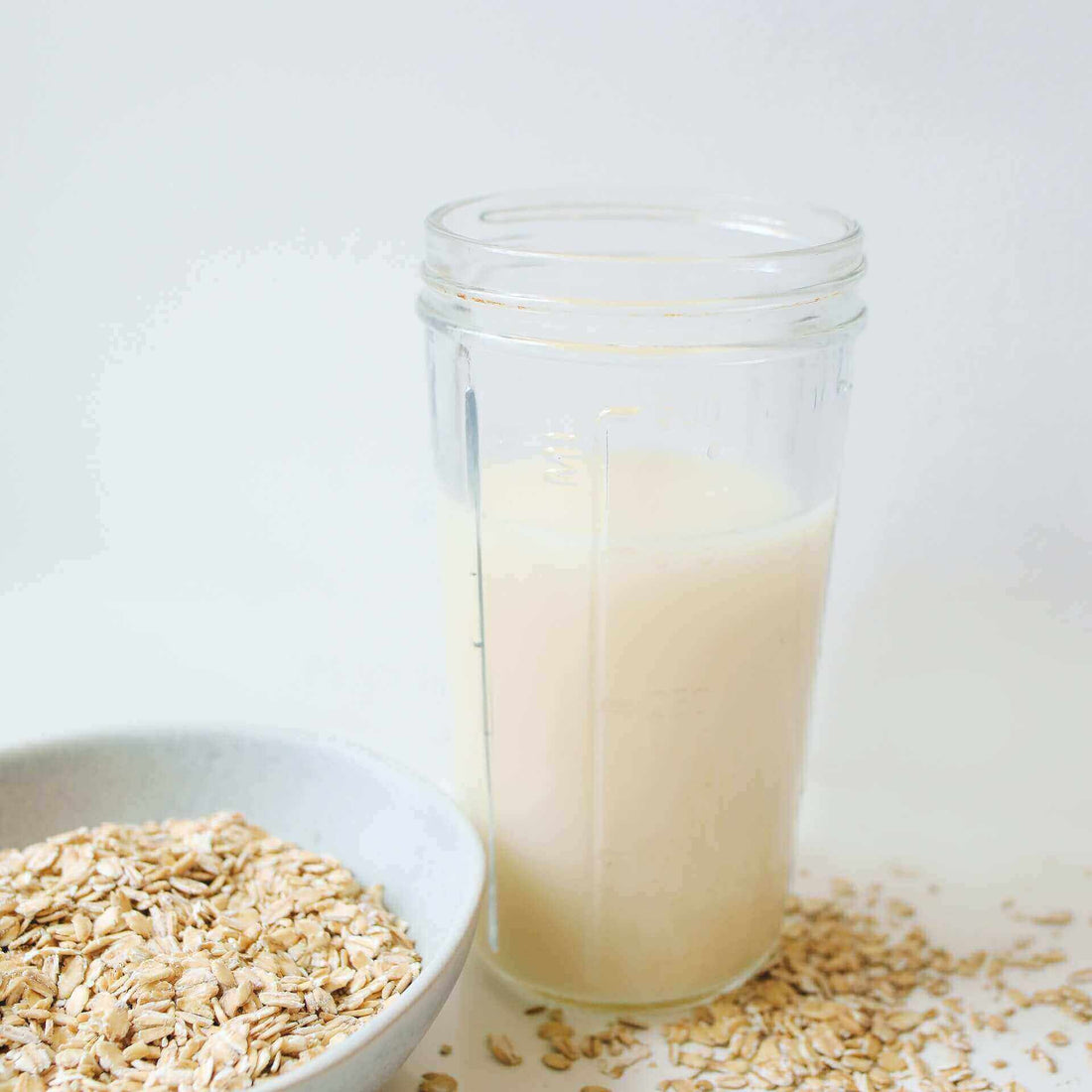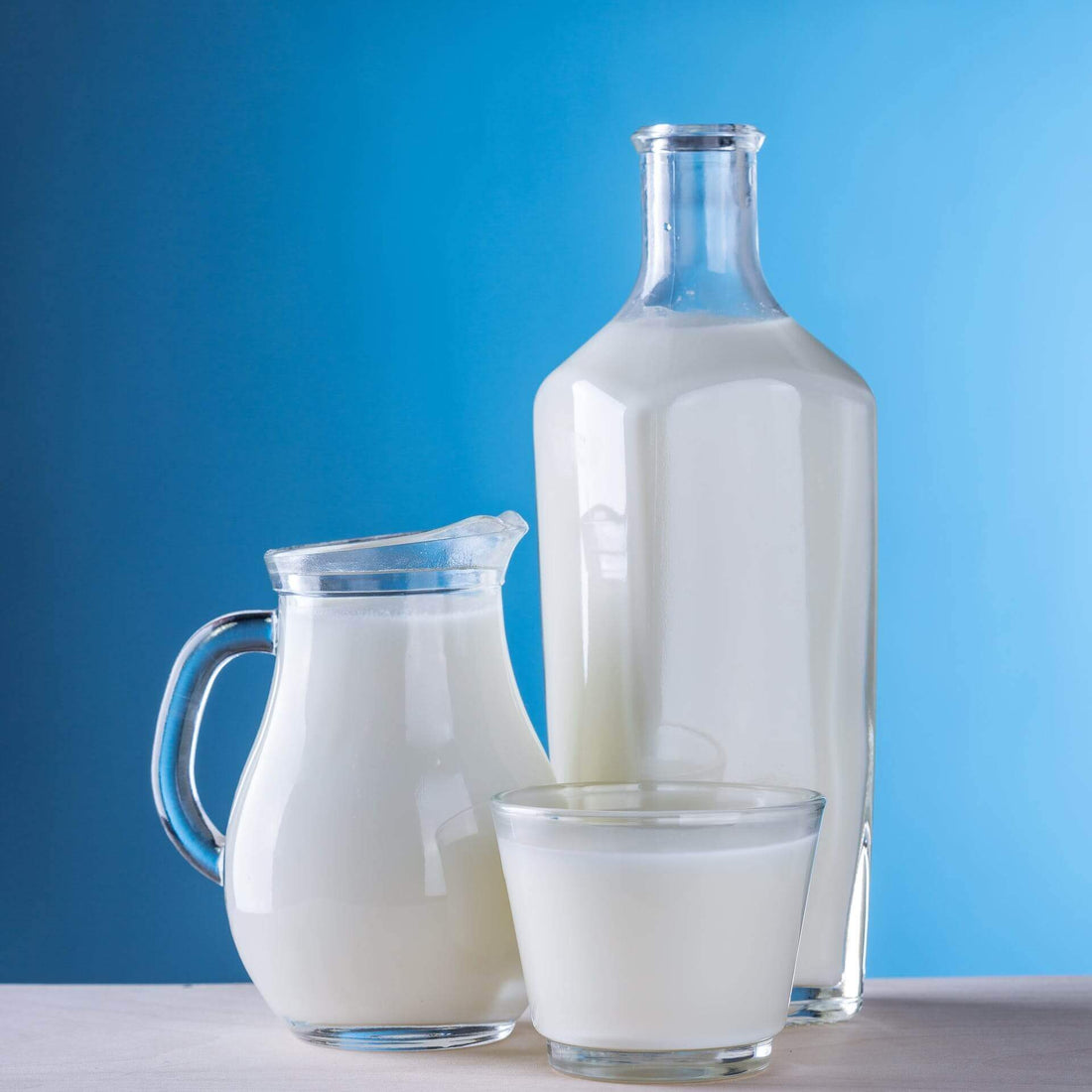2. Spelled milk
From one type of grain to the next - the production of oat milk and spelled milk is similar. However, the sweetness of the taste mentioned above is more intense here than with oat milk or other types of grain.
Since spelled milk contains less calcium and proteins compared to conventional cow's milk, these are often added by the manufacturer. When it comes to other vitamins and nutrients, spelled milk is similar to regular cow's milk.
An advantage compared to oat milk is the less intense aftertaste . This one is more subtle. If you find the taste of oat milk too intense, spelled milk could be a suitable alternative, as the taste is softer and less noticeable.
People with allergies should be careful here, as spelled milk is not free of gluten . This alternative cannot be found in every supermarket. Just like oat milk, spelled milk can be foamed excellently.
3. Soy milk
A very popular milk substitute alternative is soy milk, which is made from soybeans . One of the reasons for its popularity is its high protein content, making it a suitable source of protein. Compared to cow's milk, it contains fewer fats and carbohydrates. However, there is also less calcium and vitamin B2 than in cow's milk, which can be a disadvantage.
The taste can be described as sweet and unremarkable. There is no unpleasant taste of its own, which is why even people with sensitive tastes see soy milk as a suitable alternative.
Depending on the manufacturer, the disadvantages include possible pollutants . The beans may contain some chlorate or nickel. Here it is advisable to find out about possible brands in advance and to choose organic products.
Soy milk is also ideal for frothing milk. In addition, soy milk has a high lecithin content , which can be beneficial in baking.
4. Almond milk
This milk is not made from grains and does not come from animals, but is produced by processing nuts . During production, the almonds are first ground, roasted and then mixed with water.
The resulting liquid can develop its aroma by letting it steep for a few hours. Many manufacturers add a little sunflower oil and often sugar to increase the sweetness of the almond milk. If you don't want to consume sugar, pay attention to the manufacturer and the ingredients.
The fat content of almond milk is comparable to reduced-fat cow's milk. The almond flavor is light, not overpowering and goes well with coffee. Almond milk also offers a pleasant alternative for mueslis.
Frothing also works easily with this milk substitute. By the way, the foam becomes particularly creamy if you use almond milk.
5. Coconut milk
Coconut milk is the only milk substitute alternative so far that can officially be called milk . It consists of coconut extract that is diluted with water.
By the way, coconut water and coconut drink are not the same thing : coconut drink refers to a mixture of coconut milk and coconut pulp. Coconut water, on the other hand, consists of the juice present in the coconut.
The fat content of coconut milk makes it an ideal substitute for cream . There are also sufficient proteins, which makes coconut milk healthy. It offers a good option for people looking for a way to consume saturated fat, which contains the healthier HDL cholesterol .
What may be surprising is that the flavor is not nearly as intense as is often expected. Coconut milk naturally tastes slightly sweet and can be used in the preparation of some dishes and as an ingredient in drinks, including coffee. It is popular, for example, in Asian cuisine.
However, if you are looking for an alternative that makes milk foam easy, coconut milk is less suitable. The foam collapses relatively quickly , which is why you should use another option if you have such a problem.
6. Rice milk
If you want to replace milk , rice milk, for example, is also suitable. First, whole grain rice is ground and then cooked. Then the pressing and fermentation follow. To make the rice milk, water and oil are added. This is how the milk substitute product rice milk is produced.
Good to know: A particular advantage of rice milk is that it is free of gluten and generally low in allergens. If you suffer from an allergy to nuts or soy or are affected by lactose intolerance or celiac disease , this substitute is ideal.
The taste of rice milk is reminiscent of the typical aroma of rice pudding and is therefore popular as an alternative to cow's milk. This flavor is subtle and therefore suitable for people who are looking for a less flavorful option.
Rice milk is rather low in nutrients , which is beneficial for allergy sufferers. The protein content is also not particularly high. This means you should use less rice milk if you want to froth milk.
Rice almond milk is also popular. Rice milk and almond milk are simply combined to get a delicate, nutty taste. This alternative goes particularly well with cappuccino, for example.
7. Hazelnut milk
As the name suggests, hazelnut milk is made from nuts. The hazelnut flavor is typical and is particularly popular with people who like the taste of nuts . This goes well with coffee, which gets a nutty note when used.
In terms of content, hazelnut milk is characterized by the fact that it is low in carbohydrates . It impresses with E vitamins, B vitamins and omega-3 fatty acids and can therefore be beneficial to health. The level of protein content is convincing.
Here too, manufacturers may add sugar to make the taste sweeter. If you want to avoid this, you should check the ingredients in advance.
While hazelnut milk impresses with its taste and content, it is less suitable for making foam. This breaks down very quickly and is not a good alternative to a cappuccino, but can be used well in a regular coffee.
8. Hemp milk
Hemp milk offers a rather unusual alternative. This trend was imported from America. The hemp seeds can be used to make particularly creamy milk . When producing the milk, the hemp seeds are ground and then water is added.
Hemp milk is also convincing in terms of content: it is rich in healthy fatty acids . It also contains vitamins and minerals, such as amino acids. It offers a real alternative for allergy sufferers : hemp milk contains neither lactose, cholesterol or gluten. There is also no soy or milk protein.
It does n't have a particularly strong taste and can therefore also be used as a milk substitute for coffee . When used in a cappuccino, the taste disappears and is covered by the taste of coffee.
The color is reminiscent of ordinary cow's milk. If you want to make your own foam , hemp milk works well. The foam remains temporarily solid and can be used for cappuccino and other coffee drinks.
However, it should be mentioned that hemp milk is not yet widely used in this country. This means that there may be problems if you look for it, as it is not yet available in many supermarkets.
9. Lupine milk
Our next candidate is also not yet widely used: lupine milk. The lupine, also known as the wolf bean, is reminiscent of a pea and is a legume . Lupins are ground and pressed during the manufacturing process, from which the lupine milk or lupine drink is created.
The high protein content is particularly positive, making the drink also suitable for vegans. It also contains valuable substances such as iron, magnesium, potassium and calcium. Allergy sufferers also see lupine milk as an interesting option, as it does not contain gluten, soy, milk protein or lactose.
One downside is that it 's difficult to access , as you're unlikely to find lupine milk at your local grocery store. Due to its positive properties, it is quite possible that lupine milk can become established in the long term.
10. Pea milk
Don't worry, pea milk is not a strange-looking, viscous, green liquid. Pea milk consists mainly of pea protein and water. Sugar and sunflower oil are often added.
Pea milk also impresses with its high protein content. The calcium content is also impressive. In addition, it often contains omega-3 fatty acids , vitamin D and vitamin A.
In appearance, pea milk is reminiscent of ordinary cow's milk. The consistency is rather creamy . The taste is partly reminiscent of soy milk, but can seem nuttier. Milk substitutes like these can seem a little bitter and slightly sour.
This milk substitute is less suitable for coffee
Let's move on to another grain alternative, millet milk. The types of grain mentioned so far look comparatively similar to cow's milk. Millet milk differs significantly in appearance and has a strong yellowish appearance.
 Germany
Germany
 Austria
Austria
 Switzerland
Switzerland
 Netherlands
Netherlands
 Belgium
Belgium
 Luxemborg
Luxemborg







